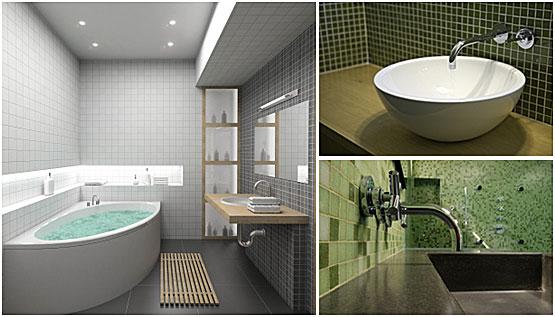Valuable Tips About Repairing Your Home's Plumbing
Plumbing issues can damage both your home and your household goods. The following tips can help you diagnose and repair any plumbing problems you encounter.
A great tip to use to stop your septic tank from backing up is to make sure you have it pumped at least every five years. Septic systems can back up when the septic tank builds up sediment. Water Heater Installations can even result in the septic system failing altogether. Although it is somewhat of an expense to pump out a septic tank, it is nothing compared to what you will have to spend on cleaning up a backup of sewage or repairing or replacing your septic system.

You can resolve most toilet clogs yourself. Try a plunger first. If plunging the toilet doesn't seem to clear up a clog, check the toilet's water level. If it's too low, try filling a bucket with warm water. Open the toilet's tank, and pour the water in. If the water goes down to a lower level again, then you should repeat the procedure.
Never put your hands in your garbage disposal to fix a problem. Your garbage disposal is a dangerous device, even when turned off. You can search online to get schematics or troubleshooting advice for your garbage disposal.
Orange or pink discoloration on your bathroom fixtures is a solid indication that your water contains too much iron. You will need a water softener in order to take care of this problem, which you could purchase at a local store, or hire someone to go to your home and fix it for you.
Schedule all your plumbing work at the same time. You might be tempted to have a plumber come out for every little thing that happens, but kicking the can on some issues until you have a list means you can save a few bucks. You'll save a ton of money by not having to pay a professional to come out multiple times, instead only paying them to show up once to handle different problems all at once.
Water that drains back into your dishwasher is likely due to an improper sink hook up. The hose must lead uphill then back downhill to prevent the combining of water from each device.
If you want avoid future issues with your toilet, don't treat it like a trash can. Nothing should be flushed down the toilet except human waste and toilet tissue. Flushing sanitary napkins, diapers, disposable napkins, and other materials is a sure recipe for a clogged drain and a backed-up toilet. You will also want to use the least amount of toilet paper as required.
If you have a shower head that needs replacing, be sure to get one that is good quality. Sometimes, people will choose a shower head because it is the least expensive. However, they are inexpensive for a reason, this being that they are cheaply made and tend to break a lot easier.
Taking preventative measures means you will not have to spend as much on plumbing repairs. Clogs are one of the main reasons people have to call a plumber. You can clog your drains with hair. To keep hair out of your plumbing, use a screen or cover for your drains that allows water through but keeps hair out. It's far simpler to clean the screen than to remove a hair clog in the pipes.
Don't rely on drain cleaners too much. The chemicals that these cleaners are made up of are corrosive, and will damage the pipes in your house if you overuse them. If your drain is clogged, hire a pro to figure out the problem.
It is important to check the background of any plumbers you are looking at hiring, and get referrals if possible. Sometimes plumbers will not be very good at their job, and can even make problems worse than they are. Search for reviews of plumbers, or ask friends or family members to recommend a competent plumber.
Problems with plumbing can be tiresome, but with effort and patience, they can be repaired. You may have to do some research and talk to a professional. Try these tips to help rid yourself from plumbing issues.

